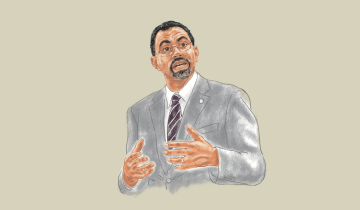Editor’s note: Maria Cozette Akopian EdD ’20 designed the Women First: Leadership and Professional Development Program while pursuing her doctoral degree in the Doctor of Education in Organizational Change and Leadership program. The program has been adopted by the College of Professional and Global Education at California State University, Los Angeles. Okopian also holds an MBA from Woodbury University.
We’re always preaching men and women are equal. While this is true, they are not the same.
Women learn and lead differently. Currently, the opportunities for leadership development cater to men because leadership is defined and measured by masculine traits.
Interestingly, while women must endure more throughout their lives compared to men, these very challenges and barriers make them resilient. Talk about a blessing and a curse!
We need resilient leaders to revamp and rescue organizations in a post-pandemic world.
The research clearly shows that companies with women in leadership perform better. How are we different than men, you ask? Women are more empathetic, collaborative and democratic. This is how we lead.
Naturally, we also learn differently. Women gravitate to learning through mentorship and support. Our nurturing spirit drives us to become lifelong caregivers and we learn best in settings where there is emotional support, peer feedback and teamwork.
In many ways, women not only benefit from cooperative learning, but they also become better leaders when they’re able to engage with various organizational levels.
Because of these key differences, women need unique leadership development opportunities. Through my doctoral research in USC Rossier’s Doctor of Education in Organizational Change and Leadership program, I found the following to be valuable components of a women’s leadership development program.
1. Improving confidence
Confidence is a key part of being a good leader. As proposed by the brilliant psychologist Albert Bandura, self-efficacy is how we view our potential and capacity of optimal performance. There are ways we can improve our self-efficacy beliefs.
Mastery experience is when we actively do what we are good at. This, in turn, instills higher self-efficacy beliefs so that we can take on more challenging tasks more confidently.
Verbal persuasion is achieved through surrounding yourself with individuals who provide positive feedback and foster a supportive environment.
Finally, vicarious experience. This involves observing others successfully completing the task you’re weary of doing. This can be done by shadowing a mentor or serving as an apprentice to a positive role model.
2. Valuing mentorship and support
Much like teaching, we learn a great deal about ourselves when we become mentors. Valuing mentorship and support includes actively seeking mentors, as well as becoming one.
Mentors are professionals we admire that believe in us when we often don’t believe in ourselves. There are so many benefits to mentorship of which include improving confidence and attaining new skills.
3. Collaboration
A healthy exchange of ideas creates a fruitful and productive environment. Generally, humans thrive in collaborative settings and more so, women.
Lectures, seminars, and workshops can all have collaborative components. The same can be done for projects assigned to individuals. Have you heard of IDEO? They are the leaders in design thinking and the way they assemble their teams is highly effective. They also attribute their success to it.
Groups are comprised of individuals with different strengths. This way, the team becomes much more comprehensive in their approach.
4. Procedural knowledge of leadership development
Leadership is all about building other leaders. Procedural knowledge is understanding organizational culture and where leadership development opportunities can be implemented.
What are the policies that support diversity and gender equity? Are there any? Organizations that have a fair and just culture are typically those that will offer meaningful ways for every employee to have unique opportunities for professional growth.




